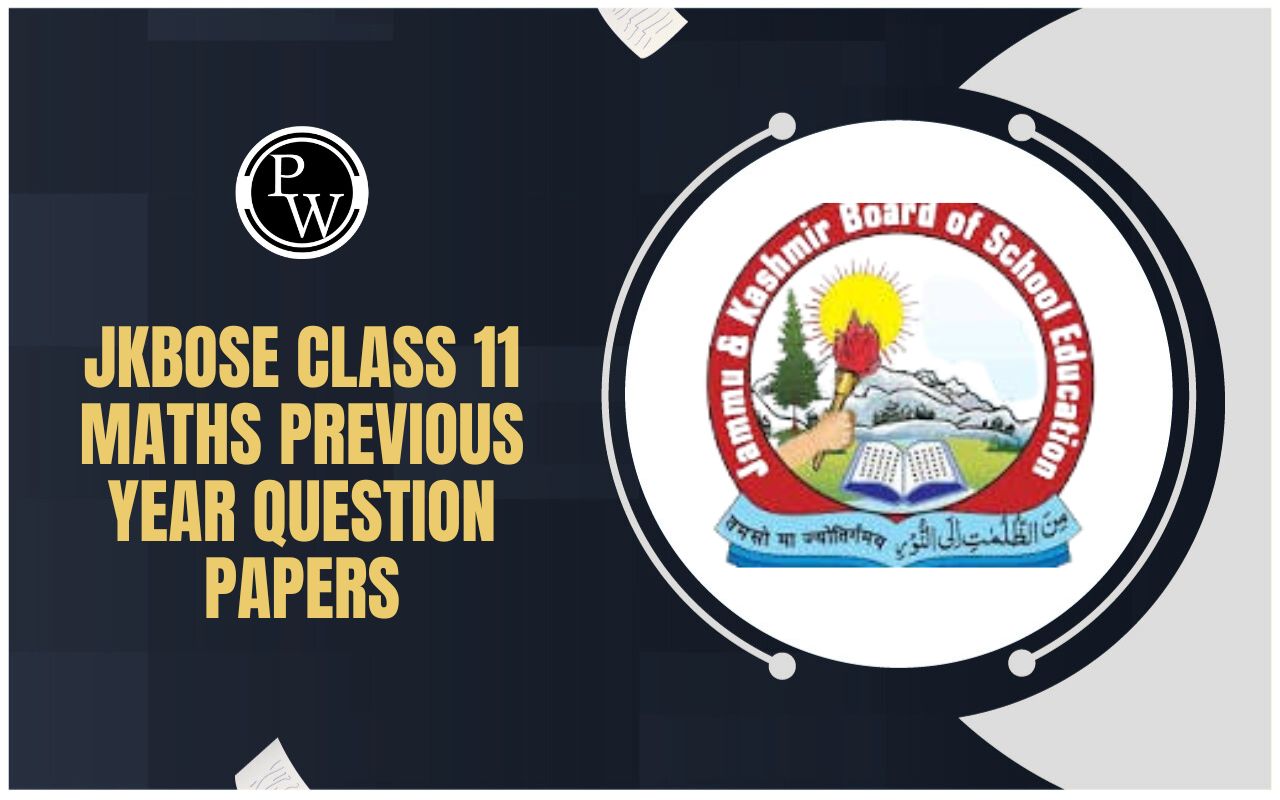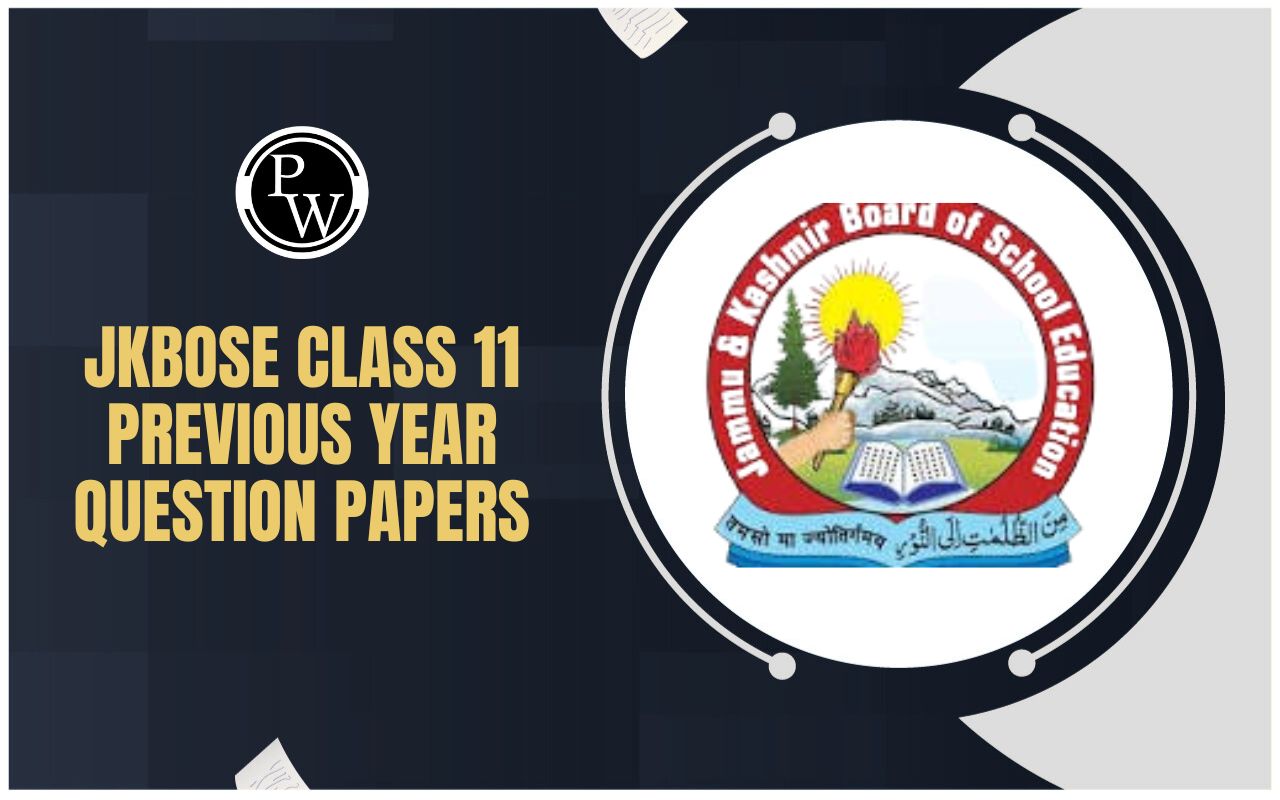
JKBOSE Class 12 Chemistry Syllabus 2025: The official syllabus has been released by the conducting body, JKBOSE. The JKBOSE Board follows the NCERT curriculum and aims to provide students with a clear understanding of the course structure, marking scheme, and important topics for the academic year.
The subject Chemistry is a compulsory subject for all science stream students. Students must actively participate in understanding the concepts rather than focusing on completing the syllabus or memorizing it. The JKBOSE Board exams are conducted every year in two zones– soft zone (March) and hard zone (April).
JKBOSE Class 12 Chemistry Syllabus 2025
The JKBOSE Class 12 Chemistry Syllabus 2025 also mentions that Chemistry is a compulsory subject for the science stream students. Students must refer to the syllabus thoroughly and understand the exam pattern for effective board preparation.
The below mentioned subject combination must be referred by the students to select the subjects. Students must keep in mind that the chosen subjects align with their interest and career goals.
JKBOSE Class 12 Chemistry Syllabus 2025 Exam Pattern
The JKBOSE Class 12 Syllabus 2025 Exam Pattern has been officially released along with the syllabus for each subject. It includes the type of questions and its marking scheme. The exam pattern includes questions like MCQs, short answer, long answer questions, and objective questions.
It reflects that the exam pattern not only tests objective knowledge but also tests conceptual understanding, analytical skills, and application-based learning. Students are expected to explain chemical reactions, solve numerical problems, and justify theoretical concepts, especially in topics like Electrochemistry, Thermodynamics, and Organic Chemistry.
JKBOSE Class 12 Chemistry Syllabus 2025 PDF Download
JKBOSE Class 12 Chemistry Syllabus 2025 includes all the details regarding the marking scheme, the exam pattern, and even the stream-wise subjects to be chosen by the students. Students must carefully study the syllabus and begin their preparation accordingly. For reference, students can download the syllabus from here:
Do you need help with your homework or preparing for exams?
Study without using the internet
JKBOSE Class 12 Chemistry Syllabus 2025 Marking Scheme
JKBOSE Class 12 Chemistry Syllabus 2025 Marking Scheme gives the important details about the division of marks as well as the exam duration. The exam duration is 3 hours and the written exam will be of 70 marks. The remaining 30 marks are for the practical assessment.
The marking scheme gives a brief description about the high weightage topics which students must cover in order to score well in the exam. Students must focus on units like Electrochemistry and Aldehydes, Ketones and Carboxylic Acids as they carry higher weightage of marks. Students must also go through the previous years’ papers to analyze the exam trends and questions types.
|
JKBOSE Class 12 Chemistry Syllabus 2025 Marking Scheme |
||
|
Unit Number |
Unit Name |
Marks Allotted |
|
Unit I |
Solutions |
07 |
|
Unit II |
Electrochemistry |
09 |
|
Unit III |
Chemical Kinetics |
07 |
|
Unit IV |
D and f-Block Elements |
07 |
|
Unit V |
Co-ordination Compounds |
07 |
|
Unit VI |
Haloalkanes and Haloarenes |
06 |
|
Unit VII |
Alcohols, Phenols and Ethers |
06 |
|
Unit VIII |
Aldehydes, Ketones and Carboxylic Acids |
08 |
|
Unit IX |
Organic Compounds Containing Nitrogen |
06 |
|
Unit X |
Biomolecules |
07 |
|
Total |
70 |
|
The Practical assessment is further divided into an internal assessment (10 marks) and external assessment (20 marks). The external assessment marks are divided into various assessments like project work and experiments. Here’s a list of it:
|
External Assessment Marks Division |
|
|
Component |
Marks |
|
Volumetric Analysis |
06 |
|
Salt Analysis |
06 |
|
Content-Based Experiment |
04 |
|
Class Record, Project Work and Viva |
04 |
|
Total (External) |
20 |
JKBOSE Class 12 Chemistry Syllabus 2025 Recommended Book
JKBOSE Class 12 Chemistry Syllabus 2025 also includes a recommended book named A textbook of Chemistry for Class XII published by NCERT, New Delhi which students must refer for effective preparation.
As the JKBOSE follows the NCERT curriculum, this book is a must for board preparation as most of the questions in the exam appear from the NCERT or are based on it. NCERT is a great source of knowledge for Class 12th students.
With NCERT, students must also refer to previous years’ papers and practice them under timed conditions to test their knowledge and speed and accordingly improve their preparation level.
JKBOSE Class 12 Chemistry Syllabus 2025 Benefits
-
The JKBOSE syllabus follows the NCERT which allows students to prepare for both board exams and national-level entrance tests like NEET and JEE.
-
The syllabus gives a clear topic-wise marking scheme which helps the students focus more on high-weightage topics like Electrochemistry, d- and f-block elements, and Organic Chemistry to make a good overall score in the board exams.
-
It follows a balanced approach by including Physical, Inorganic, and Organic Chemistry in the syllabus. The syllabus ensures comprehensive learning across all branches of Chemistry to provide an overall conceptual clarity.
-
It helps students to focus on practical skills as well by focusing on the practical syllabus as well which includes Volumetric Analysis, Salt Analysis, and Viva, strengthening lab skills with the help of theoretical knowledge.
-
The syllabus encourages students to focus on conceptual as well as application based learning. Topics like Chemical Kinetics, Solutions, and Coordination Compounds require both theoretical understanding and practical application.
JKBOSE Class 12 Chemistry Syllabus 2025 FAQs
How much time does it take to complete class 12 chemistry syllabus?
How many chapters are in chemistry Class 12 in 2025?
Which topic is hardest in chemistry?
Is it easy to score 90 in chemistry Class 12?
Is chemistry 12 hard?









